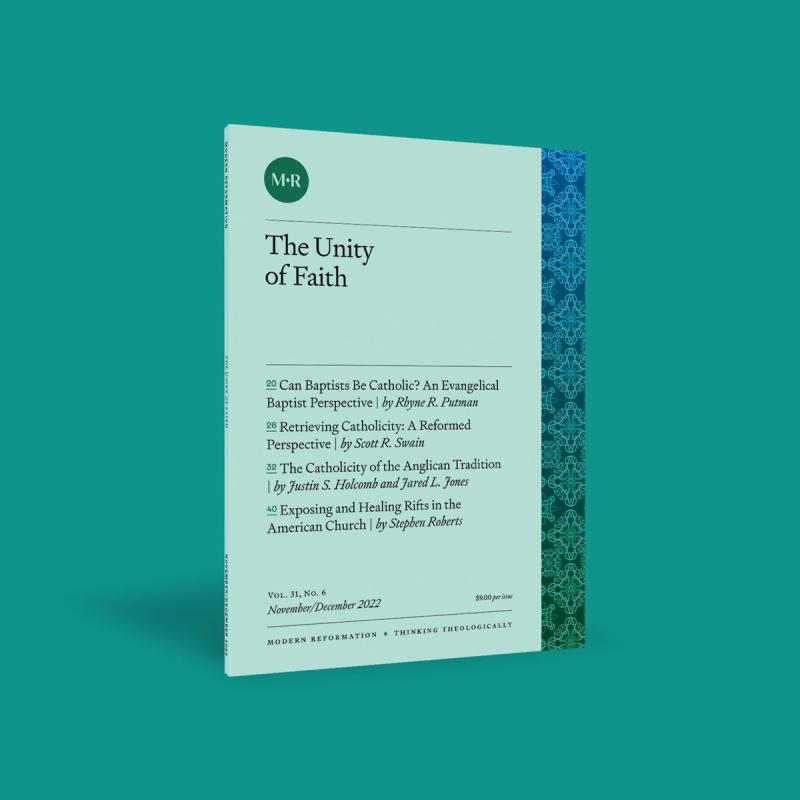As we approach the end of 2022, it seems appropriate to reminisce. Looking back, 2022 has been an exciting year for Modern Reformation. We’ve celebrated thirty years with a redesign of the print magazine and website, we’ve published some significant content—tackling tough but important issues in a spirit of humility and fidelity—and we’ve engaged in many discussions with our readership. I feel especially inclined to reminisce as I write what is my final Letter from the Editor for MR. I have taken a teaching position at Yellowstone Theological Institute and leave MR full of fond memories and gratitude. I am also filled with much confidence for MR’s future; our cup truly overflows.
We’ve spent much of this past year reminiscing, looking back at historical aspects of evangelicalism. We will do so again in this final issue of 2022—yet somewhat deeper this time as we ask what it means for our Reformation traditions to be catholic. I say deeper because to ask this question takes us back beyond the sixteenth century to the beginnings of our faith tradition. The term “catholic” (καθολικός) is not a New Testament term, but very early on began to be used to describe the church. The first extant instance comes from Ignatius’s Epistle to the Smyrnaeans (c. 110). By the end of the second century, “the church catholic”(ἐκκλησία καθολική) had become a more technical designation, as in Stromata (VII.17) by Clement of Alexandria (d. ca. 215):
The true Church, that which is really ancient, is one . . . from the very reason that God is one, and the Lord one. . . . Therefore in substance and idea, in origin and in development, we say that the ancient and catholic church [ἐκκλησία καθολική] is only one, agreeing as it does in the unity of the one faith.
In its more technical sense, “catholic” designates the unity and continuity of Christian teaching and corporal fellowship through time. So then, what does it mean to say that our own Reformation traditions are catholic? We’ve asked several representative scholars to help us think through that question: Dr. Scott Swain (Reformed), Dr. Rhyne Putman (Baptist), and the Rev. Dr. Justin Holcomb and the Rev. Jared L. Jones (both Anglican).
This issue also represents a season of mourning for the Modern Reformation family. We began 2022 with much excitement as the esteemed poet laureate of North Dakota, Larry Woiwode, became MR’s new poetry editor. Then sadly, on April 28, Larry died at the age of eighty after a short illness. Although we grieve, we are not without hope. Out of love and gratitude for the man and the poet, this issue includes several tributes to Larry Woiwode, including a personal reflection from Dr. Gregory Reynolds and three of Larry’s poems, selected by Mark Green.
As you read through this issue, we invite you to pause and reflect. Amid the troubles of our time, we invite you to pray Psalm 77:11 with us:
I will remember the deeds of the Lord;
yes, I will remember your wonders of old.
Joshua Schendel Executive Editor







